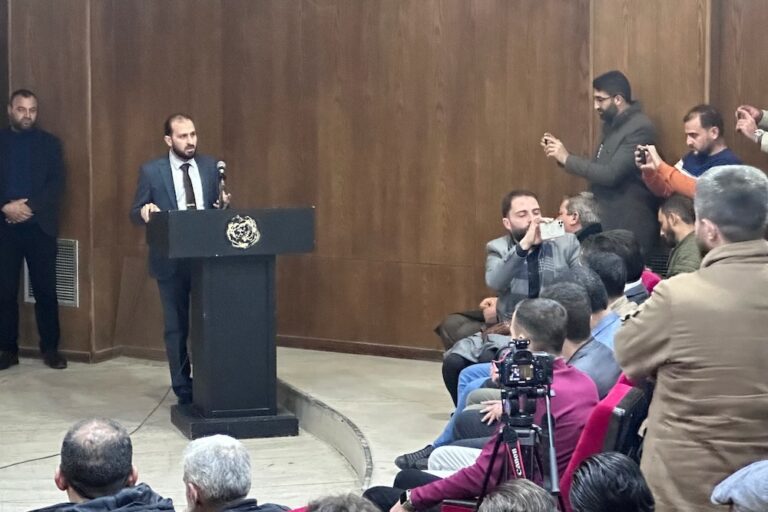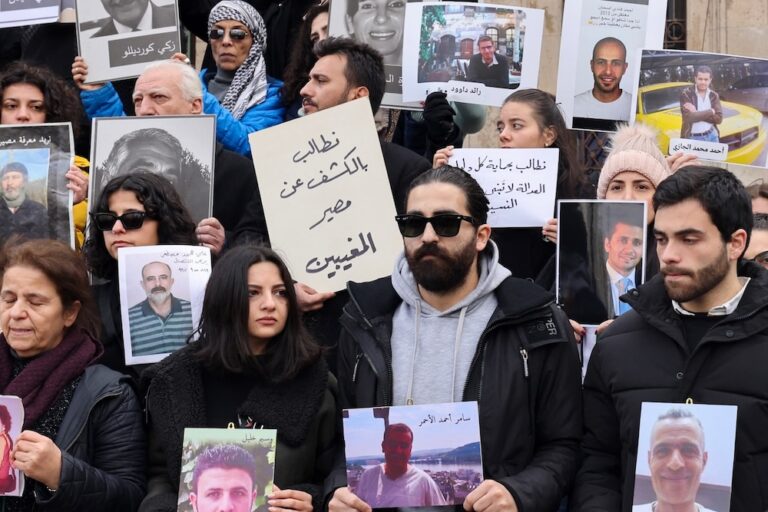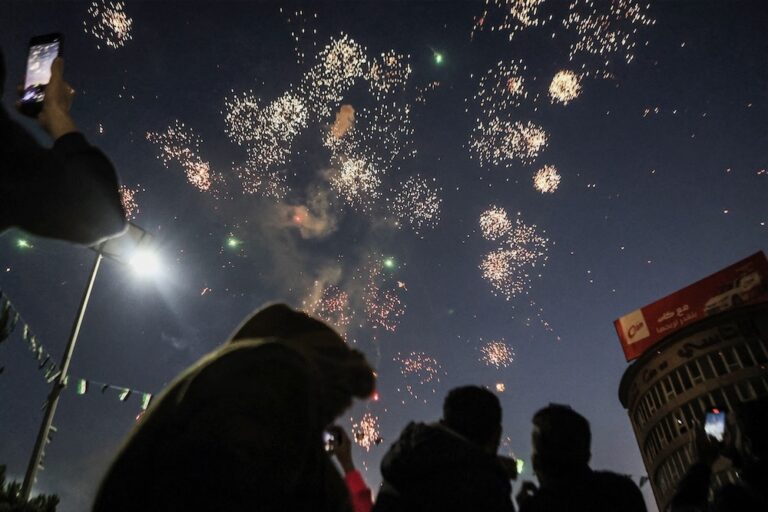As part of an ongoing campaign to "combat the spread of false news and rumours" on social media, authorities arrest eight people for their Facebook posts, including prominent Damascus-based TV presenter Hala Al-Jarf.
This statement was originally published on gc4hr.org on 5 February 2021.
Eight people, including a well-known media figure, remain in detention after being arrested in January in Syria for comments made on Facebook, in violation of their right to freedom of expression, according to reports received by the Gulf Centre for Human Rights (GCHR).
On 24 January 2021, members of the security forces arrested TV presenter Hala Al-Jarf on her return from Al-Salmiah, a town located in the countryside near Hama, to the capital, Damascus, where she was detained in the Criminal Security Branch from that time until now. On 31 January 2021, her cousin Tammam Eid posted on his Facebook page the following: “According to Article 101 of the Syrian Media Law, the Minister of Justice circular was issued not to arrest or interrogate media professionals except after informing the National Media Council or the Journalists Union branch to assign whomever is suitable to attend to media professionals … was this material taken into consideration ???”
Among the other citizens who were arrested on the same charges related to posting on their personal Facebook pages are Falah Younis Suleiman for criticising the governor of Tartous; the inspector at the Central Authority for Supervision and Inspection, Feryal Jahjah; and a 20-year-old student in the second phase of studies at the College of Pharmacy, Farah Khazim.
The Syrian Ministry of Interior confirmed the news of the arrest, publishing a statement on 31 January 2021, on its Facebook page stating: “The Criminal Security Department has arrested eight people for the offense of communicating with and dealing with suspicious websites.”
The statement noted that the arrests were “part of the efforts made by the Ministry of Interior to follow up and combat the dissemination and transmission of false news and malicious rumours circulated on some social media pages and YouTube channels for suspicious purposes.” The statement added, “During interrogations, they confessed to communicating with these pages and providing them with fabricated information. The necessary documentation was organised and those arrested were presented to the judiciary in accordance with the provisions of Articles 285-286-287 of the Penal Code and Article 28 of the Anti-Cyber Crime Law.” Al-Jarf’s name was mentioned in the statement with her initials.
On 19 January 2021, Al-Jarf posted on her Facebook page the following: “We do not want snow, we do not want rain, we do not want fuel or electricity, no oil, no bread, no rice, no food, etc. No… We do not want oxygen, no no no, we do not … We want death … Do not humiliate honourable souls … People have reached Mars while they are discovering new planets, suns and moons, and we returned to the Stone Age with distinction.”
On 22 January 2021, Al-Jarf also published a post in which she said, “Let your motto for the next stage be ‘Stay home’ and remain completely silent.”
Local observers believe that her successive publications, some of which were mentioned above, are the reason for her arrest, as she spoke in those posts about the poor living conditions that citizens suffer in.
Al-Jarf is a well-known media figure who is one of the female presenters who has worked the longest for the official Syrian TV, and is known to be loyal to the Syrian government.
In March 2018, the Syrian government passed Electronic Media Law No. 26, laying down controls for media and publishing on websites. In March 2018, the Syrian government announced the details of a law punishing cybercrime, and for this purpose it established special courts and appointed 85 judges to look into these crimes, after the perpetrators were arrested at the Cybercrime Branch of the Ministry of Interior.
GCHR calls on the Syrian government to:
- Respect freedom of expression and to immediately and unconditionally release all those detained for comments made on Facebook; and
- Refrain from using cybercrime laws and mechanisms to punish peaceful speech online.



